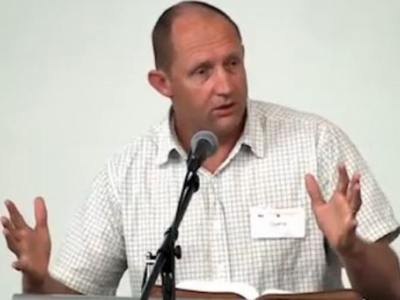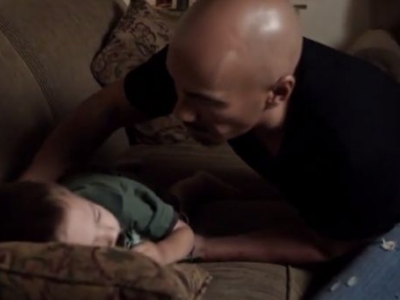
Five ways to do evangelism with your kids
How do we help our children reach the community in which they live?
One of the great privileges of being a parent is engaging as a family in the community so that Christ is made known. For our family this has meant deliberately connecting with our kids’ school and being known as Christians there.
But how do we help our children engage in reaching the community in which they live?
1. We need to be mission-minded.
About a year after we started a family service in our church, our son said that he was going to make sure that there were always more children than adults in his church. My response was, ‘Well, you better get inviting because I’m inviting their parents’. And he has, and we have.
He already has a clear sense that this is an important task, not just for us but also for him.
Our responsibility is to make it easy for kids to bring their friends. If church is attractive and fun, we (the adults) can offer to pick up and drop off and we can allow sleep-overs that coincide with church. If they mention that someone doesn’t have a Bible, we can purchase one so they can give it to them. Our responsibility is to enable the children in their ministry.
2. Kids need to know that God is mission-minded.
This needs to be on both a local and global scale. Understanding what God is doing in world mission helps my kids recognise the needs in their own community. Being involved with a mission agency and meeting people who work all around the world changes kids’ perspectives.
It’s not hard for kids to understand some of the deeper theological concepts behind God’s desire to reach the whole world. God loves them and others need to know that too.
3. Kids need to understand the gospel for themselves.
Children in Christian families are sometimes at risk of ‘missing out’ on really understanding the gospel. I think there are a number of reasons:
- Many children’s Bibles end at the resurrection rather than the end of the New Testament and so living a life of faith is not communicated in their reading.
- Since they have heard the gospel from the day they were born, they struggle to separate ‘church’ from ‘faith’.
- Since they want to please both their parents and God, they sometimes confuse this with being Christian.
And so these little ones need to know clearly that they are not saved by being ‘good enough’, but rather by being ‘bad enough’ for Jesus to die for.
4. Kids need to know that they can pray for their friends.
Kids do feel daunted about explaining hard concepts and we need to encourage them that they can begin by simply praying for their friends. Understanding that conversion is God’s role not theirs can relieve some of the anxiety.
5. Kids need to know how to explain the gospel.
Since I began teaching the Primary Age Kids’ Club at church, I realised that while these kids may have some understanding of what it means for them to be Christian, they struggle to express it in way that makes sense for their friends. So I decided they needed to learn how to communicate the gospel with their friends (just like any adult).
For me, this means explaining the concepts in words that they understand. ‘Jesus went to time out for us’, ‘Jesus did a swap when he died—he swapped his goodness for our badness’.
I also taught them my ‘gospel diagram’ (see The one–minute gospel explanation) so that they have something visual to rely on. And surprisingly, even as young as seven, they can make a good attempt at explaining it.
These are just some of my tips for helping kids be mission-minded. Just asking the question, ‘How do I help my kids be mission-minded?’ changes how we view their ministry opportunities.
For more articles from Growing Faith, subscribe to our monthly e-newsletter.
To hear about the latest books and resources from Youthworks Media, subscribe here.







